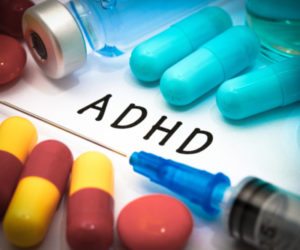ADHD and Addiction

Learn more about ADHD and addiction from the experts at White Sands Treatment Center
Many people with attention deficit hyperactivity disorder (ADHD) may abuse alcohol and drugs as a way to self-medicate. About 25% of individuals who enter drug rehab centers suffer from ADHD and addiction. Treatments for substance abuse should also include treatment for mental disorders like ADHD. Some individuals who suffer with ADHD and are treated with stimulants may abuse the medication and develop ADHD medication addiction.
A recent study at Harvard, under the supervision of Dr. Wilen, found that children who were treated for their ADHD were less likely to abuse alcohol and drugs when they got older than their undiagnosed and untreated peers. Untreated adults with the disorder were found to abuse marijuana and alcohol three times more than adults without the disorder. People who are not treated for the disorder may use drugs and alcohol for a variety of reasons:
- To improve their concentration.
- To slow down the brain’s hyperactive state.
- To control impulsive behavior.
- To improve poor judgment.
- To overcome social awkwardness.
There are other factors that link ADHD and addiction together, such as lower academic scores resulting in less high school and college graduations. This often causes the individual to earn lower wages from entry level, blue-collar and minimum wage employment. It is believed that ADHD affects children more than any other behavioral disorder. Some of the hallmark signs of ADHD are: hyper physical activity, impulsive behavior and poor attention.
Many people who suffer from ADHD are bright, intelligent and creative but the disorder prevents them from being able to concentrate on any given topic. They also have a difficult time controlling their impulse to act out. Sadly, many children with ADHD are marked as troublemakers and often have problems with their peers. Reports from the U.S. Department of Health and Human Services claim that teens with ADHD are more vulnerable to engage in drug and alcohol abuse, and criminal behavior. Untreated ADHD and substance abuse seem to go hand in hand.
Some of the behavioral signs of a person with ADHD include:
- Fidgeting
- Poor focus and attention
- Forgetfulness
- Easily distracted
- Difficulty completing tasks
- Losing or misplacing items
- Interrupting others
- Unable to control activity or speech
- Difficulty organizing plans or responsibilities
Some stimulant medications used to treat ADHD include: amphetamines (Adderall) and methylphenidate (Ritalin, Concerta). The behavioral symptoms of ADHD usually become apparent when the child is in pre-school or the early elementary school years; with an average age of 7 years old. Symptoms seem to improve as the child reaches adolescence, but the disorder may continue into adulthood. Prescription medications combined with psychotherapy have shown to be effective in treating ADHD. Some benefits include improvement of ADHD symptoms, enhanced thinking ability, a boost in self-esteem and better family and social interactions.
Prescription stimulants increase the dopamine level in the areas of the brain that are associated with pleasure and euphoria. When these drugs are abused they will rapidly flood the brain with a high amount of dopamine. This action causes a disruption in the normal communication of brain cells and causes a euphoric state that is a high risk for addiction. ADHD and addiction occurs when the patient takes more of the medication that is medically prescribed by the doctor. When taken at the proper dosage, medications taken to treat ADHD have shown to be safe and will not cause future substance abuse.
Medications used to treat ADHD have a positive impact on improving symptoms. The best course of treatment for ADHD is medication, education, and behavioral and psychological interventions. This course of treatment is the best preventive measure against ADHD and addiction.
If you or a loved one needs help with abuse and/or treatment, please call the WhiteSands Treatment at (877) 855-3470. Our addiction specialists can assess your recovery needs and help you get the addiction treatment that provides the best chance for your long-term recovery.
